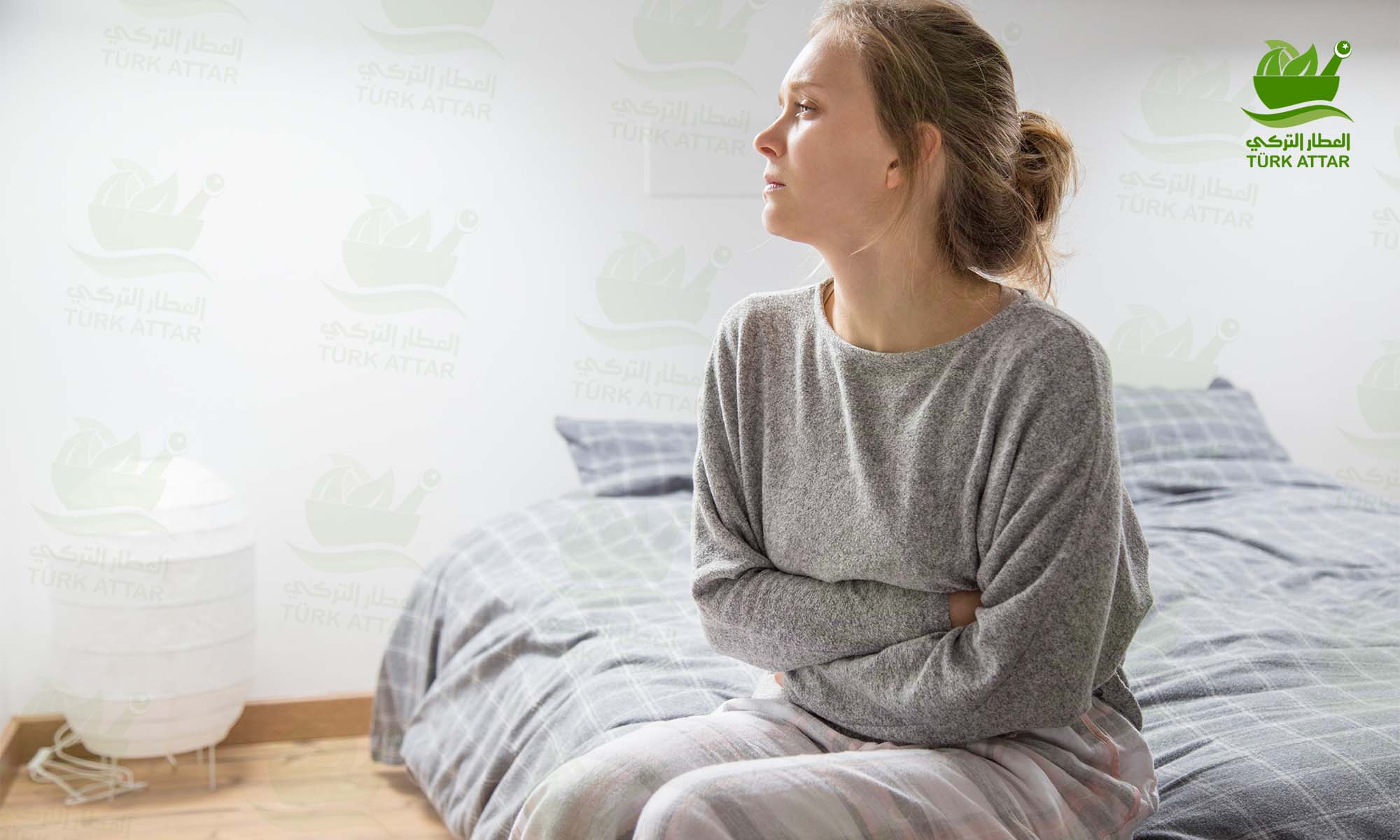
من سن 40، حتى متوسط عمر 51، يمكن أن تحدث تغييرات في الدورة الشهرية مثل قلة زمنها، أو طولها، أو شدتها، أو خفتها، أو عدم حدوث الدورة الشهرية أساساً. هذه الفترة هي عملية تستمر حتى تتوقف المبايض عن إنتاج البويضات ولا يعد هناك فترة حيض.
ما الذي يسبب انقطاع الطمث المبكر؟
يمكن أن يكون هناك عدة أسباب لبداية سن اليأس. وأكثر هذه العوامل شيوعًا هو الانخفاض الطبيعي المرتبط بالعمر في الهرمونات التناسلية. مع اقتراب السيدات من أواخر الثلاثينيات من العمر، تبدأ المبايض في إنتاج كميات أقل من هرمون الاستروجين والبروجسترون، وهما الهرمونان اللذان ينظمان الدورة الشهرية، مما يؤدي إلى انخفاض الخصوبة.
من سن 40، حتى متوسط عمر 51، يمكن أن تحدث تغييرات في الدورة الشهرية مثل قلة زمنها، أو طولها، أو شدتها، أو خفتها، أو عدم حدوث الدورة الشهرية أساساً. هذه الفترة هي عملية تستمر حتى تتوقف المبايض عن إنتاج البويضات ولا يعد هناك فترة حيض.
عادةً لا تؤدي عملية استئصال الرحم التي يتم فيها استئصال الرحم دون المبيضين إلى انقطاع الطمث على الفور. حتى لو لم تعد المرأة تحيض، فإن المبايض لا تزال تطلق البويضات، وتنتج هرمون الاستروجين والبروجسترون. ومع ذلك، فإن التدخلات الطبية من استئصال الرحم الكلي واستئصال المبيض الثنائي، حيث يتم إزالة كل من الرحم والمبيض، تسبب انقطاع الطمث الفوري. تتوقف فترات الحيض عند هذا النوع على الفور. نظرًا لأن التغيرات الهرمونية التي تحدث عادةً في غضون بضع سنوات تحدث فجأة، فمن الممكن الشعور بهبات ساخنة وعلامات وأعراض أخرى لانقطاع الطمث، والتي يمكن أن تكون شديدة.
يمكن أن تتسبب علاجات السرطان، مثل العلاج الكيميائي والعلاج الإشعاعي، في انقطاع الطمث بشكل مباشر والتسبب في أعراض سن اليأس مثل الهبات الساخنة أثناء العلاج أو بعده مباشرة. لا يعد توقف الدورة الشهرية والخصوبة بعد العلاج الكيميائي دائمًا في كل حالة تقريبًا، لذلك قد لا يزال من الضروري اتخاذ تدابير تحديد النسل. يحدث انقطاع الطمث المبكر أو فشل المبايض المبكر في حوالي 1٪ من النساء قبل سن الأربعين.
يمكن أن يحدث انقطاع الطمث المبكر عندما لا ينتج مبيض المرأة مستويات طبيعية من الهرمونات التناسلية بسبب عوامل وراثية أو أمراض المناعة الذاتية. ومع ذلك، في كثير من الحالات لا يمكن العثور على سبب. في الحالات التي يظهر فيها ذلك، يوصى بمواصلة العلاج بالهرمونات على الأقل حتى سن اليأس الطبيعي من أجل الحفاظ على صحة وبنية الدماغ والقلب والعظام.
ما هي المضاعفات التي قد تحدث مع سن اليأس؟
بعد انقطاع الطمث، تتعرض السيدات لخطر متزايد للإصابة بحالات طبية معينة. من بين هذه الحالات الطبية، تظهر بشكل أساسي أمراض القلب والجهاز الدوراني، أي أمراض القلب والأوعية الدموية. يؤدي انخفاض مستويات هرمون الاستروجين إلى زيادة خطر الإصابة بأمراض القلب والأوعية الدموية.
تعد أمراض القلب من الأسباب الرئيسية للوفاة عند النساء والرجال على حد سواء. لذلك، من المهم ممارسة الرياضة بانتظام وتناول الطعام الصحي والحفاظ على وزن طبيعي. يجب على الأفراد استشارة الطبيب لمعرفة الخطوات التي يجب اتخاذها للسيطرة على ارتفاع الكوليسترول أو ضغط الدم.
تؤدي هشاشة العظام إلى هشاشة وضعف عظام الفرد، مما يؤدي إلى زيادة خطر الإصابة بالكسور. يفقد الأفراد كثافة العظام بسرعة في السنوات القليلة الأولى بعد انقطاع الطمث ويواجهون مخاطر عالية للإصابة بهشاشة العظام. في هذه العملية، تصبح النساء أكثر عرضة للكسور في الرسغين والوركين والعمود الفقري.
نتيجة لفقدان مرونة أنسجة المهبل والإحليل لدى المرأة، احتمالية حدوث حافز متكرر ومفاجئ وقوي للتبول، ثم سلس البول اللاإرادي، أي سلس البول الإلحاحي أو نزول البول بسبب السعال أو الضحك أو رفع الأثقال، قد يزيد من احتمالية الإصابة بسلس البول الإجهادي. قد يواجه الفرد المزيد من التهابات المسالك البولية المتكررة.
يمكن أن يساعد تقوية عضلات قاع الحوض من خلال تمارين كيجل واستخدام الإستروجين المهبلي الموضعي في تخفيف أعراض سلس البول. بالإضافة إلى ذلك، يمكن أن يكون استمرار العلاج الهرموني تحت إشراف الطبيب خيارًا فعالًا لعلاج المسالك البولية والتغيرات المهبلية التي قد تؤدي إلى سلس البول.
جفاف المهبل الناجم عن انخفاض الرطوبة وفقدان المرونة في المهبل يمكن أن يسبب عدم الراحة والإصابات والنزيف الخفيف أثناء الجماع. بالإضافة إلى ذلك، يمكن أن يؤدي انخفاض الإحساس إلى تقليل الرغبة الجنسية لدى المرأة، أي الرغبة في النشاط الجنسي. في هذه الحالة، يمكن أن تساعد المرطبات والمزلقات المهبلية ذات القوام المائي. إذا لم تقدم المزلقات المهبلية نتائج كافية، فإن العلاج الموضعي بالإستروجين المهبلي على شكل كريم مهبلي أو قرص أو تحاميل مهبلية قد يعطي نتائج إيجابية، مرة أخرى بعد نصيحة الطبيب.
خلال فترة ما قبل انقطاع الطمث وبعد انقطاع الطمث، قد يزداد وزن السيدات مع تباطؤ عملية الأيض. قد يحتاج الفرد إلى تناول كميات أقل من الطعام وممارسة المزيد من التمارين للحفاظ على وزنه الحالي.
الأعراض
ما هي أعراض سن اليأس؟
تختلف علامات وأعراض سن اليأس من امرأة إلى أخرى، بما في ذلك التغيرات في أنماط الدورة الشهرية. في الأشهر أو السنوات التي تشكل عملية انقطاع الطمث،
دورات الحيض غير المنتظمة
جفاف الجلد
التعرق الليلي
تباطؤ التمثيل الغذائي مع زيادة الوزن
فقدان امتلاء الثدي
التغيرات المفاجئة في المزاج
ترقق الشعر
الهبات الساخنة، قد تظهر عليها علامات وأعراض مختلفة مثل القشعريرة ومشاكل النوم وجفاف المهبل.
تميل الدورة الشهرية أيضًا إلى الحدوث في دورات أقصر، لذلك قد تتكرر بشكل متكرر. ومع ذلك، من الممكن حدوث الحمل على الرغم من عدم انتظام الدورة الشهرية. لهذا السبب، قد يكون من المناسب للأفراد الذين يتخطون فترة الحيض، ولكنهم غير متأكدين من أنهم بدأوا المرحلة الانتقالية لانقطاع الطمث، إجراء اختبار الحمل.

21 التعليقات
1
1
1
1
1
1
1
1
1
1
1
1
1
1
1
1
1
1
1
1
1
1
1
1
1
1
1
1
1
1
1
1
1
1
1
1
1
1
1
1
1
1
1
1
1
1
1
1
1
1
1
1
1
1
1
1
1
1
1
1
1
1
1
1
1
1
1
1
1
1
1
1
1
1
1
1
1
1
1
1
1
1
1
1
1
1
1
1
1
1
1
1
1
1
1
1
1
1
1
1
1
1
1
1
1
1
1
1
1
1
1
1
1
1
اترك تعليقًا